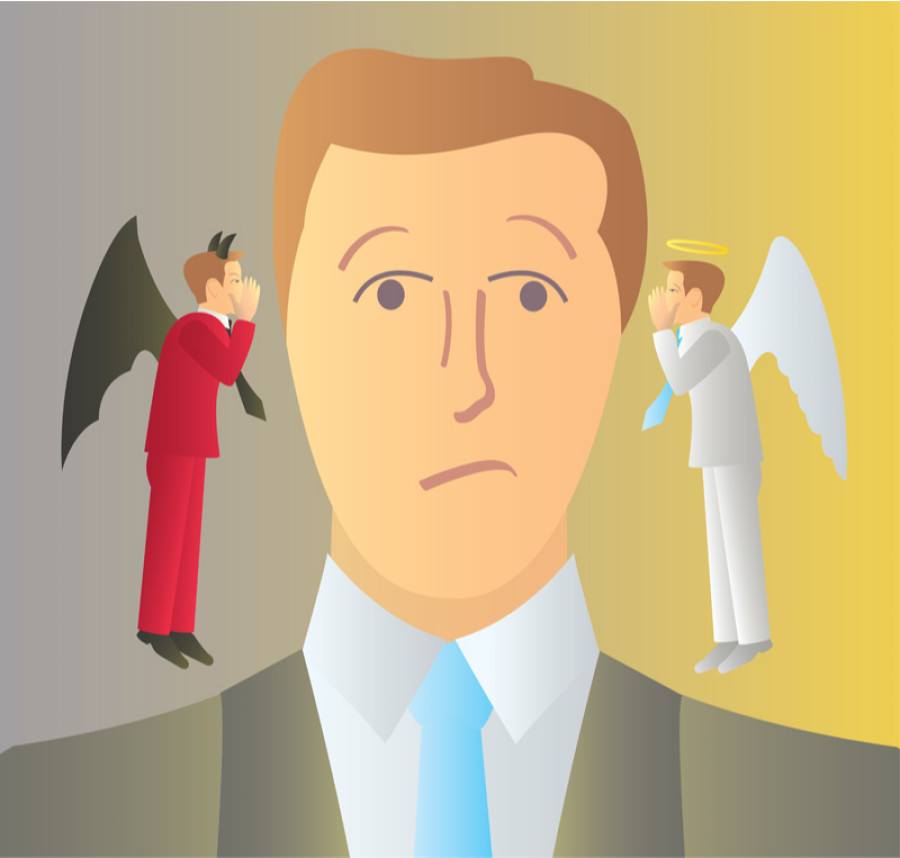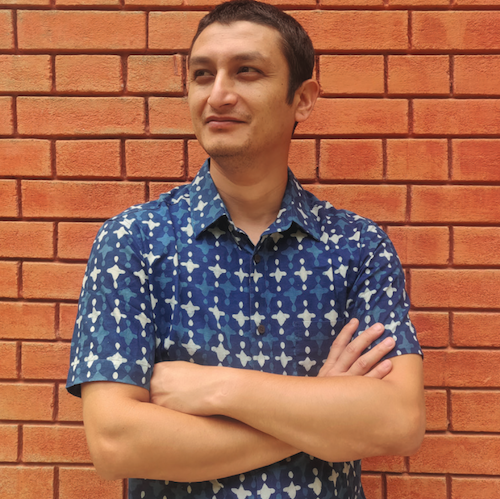Columns
Losing our conscience, one country at a time
In a time of politics without principle, the only defining ideology is nationalism.
Amish Raj Mulmi
In the early 2000s, I had just entered undergraduate college as a naive young man. Nine-eleven had occurred the previous year, and the US had already invaded Afghanistan in search of Osama Bin Laden. True to form, the Americans first named their ‘either with us or against us’ military mission ‘Infinite Justice’, which was renamed to ‘Enduring Freedom’ when it was realised Muslims could be offended by the original term since only Allah could mete out infinite justice (such political correctness, even in a time of war!)
Consider those operation names: ‘Infinite Justice’; ‘Enduring Freedom’. Such grandiose phrases, all intended to make the world a better place, a safer place. The Americans were out to protect democracy, to save the world from a bunch of terrorists who hid in caves and sent airplanes into skyscrapers 2000 miles away. So the Americans first bombed Afghanistan back into ‘the stone age’; but that wasn’t enough to protect democracy and win the war on terror. They then initiated Operation Iraqi Freedom under the ‘Coalition of the Willing’—what is it with Americans and grandstanding semiotics?—to ‘liberate’ Iraq from Saddam Hussein, using false pretences of weapons of mass destruction.
Twenty years later, as the threat of another war loomed in West Asia with American unilateral action, while several others already rage—Iraq, Afghanistan, Syria, Turkey, Yemen—freedom is in short supply, and democracy has not endured. As Arundhati Roy, the prophet of our times, predicted in 2001 itself, ‘Operation Enduring Freedom is ostensibly being fought to uphold the American Way of Life. It'll probably end up undermining it completely.’ Those who wanted to save democracy are the ones democracy needs saving from.
***
In the early 2000s, New Delhi was a land of promise. The Delhi Metro had started construction, and new expressways and highways made many buy into the dream of ‘India Shining’. A thousand kilometres away, in Gujarat, an entire community was being forced to pay the price for belonging to a different religion, and one man’s political ambitions. The community subdued and beaten into submission, Gujarat began to reinvent itself. Even as voters said India hadn’t shone enough in rural areas and kicked out the Bharatiya Janata Party in 2004, Gujarat became a model of neoliberal growth in the ensuing years. ‘Welcome to Gujarat’ was the apocryphal one-liner its chief minister Narendra Modi wrote to industrialist Ratan Tata, whose multimillion Nano West Bengal plant had just been kicked out by Mamata Banerjee.
So India chose chrome and steel over equality and justice, and here we are, witnessing a once-vibrant, once-multicultural democracy eroding itself into a unitarian vision of nationhood that has been almost a century in the making. The vocabulary is similar to the America of Enduring Freedom: either you are with us, or you are an anti-national. The slurs too are familiar: ‘Commies’, ‘Lefties’, ‘Libtards’. A nation that once recognised it was made up of many little Indias, many little ethnicities, now wants to shape itself into ‘Bharat’, first by silencing the opposition, then by beating its youth into submission. As another prophet of our times, Pankaj Mishra, recently wrote, ‘The postcolonial Indian intelligentsia [...] have too rashly connected their personal fortunes and individual identity to a supposed “rise” of India, or a noble “idea of India.” Even the apotheosis of a figure like Modi did not stop them from deifying Indian democracy… But wisdom in hindsight is always cheap, shallow and self-serving.’
***
In the early 2000s, Kathmandu too found the ground beneath its feet shift without warning. One night in June, my father woke me up in shock: the royal family had been killed. In two weeks, protests rose against a new king. In two months, the Maoists turned from brigands and robbers into terrorists, Kathmandu easily co-opted into the war on terror. An emergency was declared, and the media clamped down (albeit much of the population had already been living in a state of terror, either from state forces or from the Maoists).
Twenty years later, here we are, inviting visitors from across the world, and introducing bills to snoop on us with impunity, hard-won civil liberties being eroded. In an earlier time, perhaps in a more idealistic time, there would have been more voices to save the very ideals for which Nepalis came out onto the streets in 2006. But the opposition is a dinosaur, fighting amongst themselves while a meteor of majoritarian nationalism heads their way. And those who threw out the old king are now the new kings, unwilling to let go of their newfound gains. The infant republic is already a child stunted, the belief in it eroded by the very same people who founded it.
***
Twenty years is not a long time. And yet, 20 years is a lifetime. The world changed that fateful day in September—not because 20 blinded boys blew up two buildings and killed thousands of others for their beliefs, but because it allowed individual freedom to be sacrificed at the altar of state authority. The nation became supreme, the people secondary. A nation founded on an idea of equality became a nation obsessed with war; ‘exporting’ democracy had little meaning when it was accompanied by tomahawks and sidewinders.
Other nations followed suit. The Hollywood-ification of democracy was a natural outcome of taking on the responsibility of saving the world. If the US could do it, so could we. The principles of politics changed from respecting your opponent to combating them; they became enemies, and democracy turned into a game of nationalist credentials. The ‘other’ was normalised; civilisations had to clash; even if the planet burned, nations had to be made great again. If there were a sentence that summarised the past two decades, it was George W Bush’s dictum: ‘Either you are with us, or against us.’
Between the world's largest and the world's richest, democracy became a game of majoritarianism. And so, liberalism came to be associated with antagonism, with treason, with lack of patriotism. In the country of the blind, the one-eyed man is king. If you can make people believe they are forever in danger, who better to save them than you? In a time of politics without principle, the only defining ideology is nationalism. History will repeat itself, both as tragedy and farce, and as a broken mirror of our times.
***
What do you think?
Dear reader, we’d like to hear from you. We regularly publish letters to the editor on contemporary issues or direct responses to something the Post has recently published. Please send your letters to [email protected] with "Letter to the Editor" in the subject line. Please include your name, location, and a contact address so one of our editors can reach out to you.




 11.12°C Kathmandu
11.12°C Kathmandu















